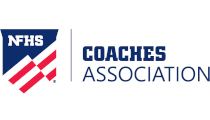Examining the Responsibilities of Being a Great Coach
By Chris Stankovich on January 08, 2015 Coaches PrintBeing an interscholastic sports coach can be an incredibly fun and rewarding experience, but with the privilege of being a coach also comes a lot of responsibility. As youth sports continue to evolve, coaches are often faced with new and sometimes complex issues to address. How coaches resolve the issues they experience has a direct impact on the kids they coach, for better or worse.
Because of the excitement that is inherent in coaching, it is not uncommon for coaches to sometimes succumb to emotional, heat-of-the-moment decisions rather than having the time or opportunity to logically think through situations. Examples of emotionally charged behaviors some coaches have demonstrated include shouting a profanity toward an official after a bad call, or making a rude gesture toward a rowdy fan in the crowd. Unfortunately, these behaviors not only negatively impact the game on the field, but also leave a lasting impression on kids that teach poor communication skills, problem-solving methods and sometimes even intimidation and physical assault threats.
The impact of social learning
Sport psychologists often point to social learning theory when reminding coaches about the importance of engaging in positive, responsible, pro-social behaviors when working with kids. Social learning theory applied to sports reminds us that kids often learn a lot of their ways of thinking and behaving by simply watching coaches – for better or worse. So when you show good sportsmanship by doing things like congratulating the winning team, or helping an injured opponent off the field, kids learn how to responsibly handle situations. Unfortunately, kids also learn from coaches when they see them use profanity, throw tantrums and use physical aggression to settle disputes.
While the majority of coaches embrace the responsibilities that come with being a coach, there have been countless stories in the news about coaches who have harassed, humiliated and even physically assaulted student-athletes. In worst-case situations, coaches have been fired or arrested; but even in cases where neither of those outcomes occur, kids have still learned by how the coach handled a situation.
Burst-stress
Coaches, unlike many other professionals, experience burst-stress, a unique type of human stress that is often immediately experienced and without warning. Police officers, firefighters and ambulance rescue units experience burst stress on a daily basis when they are immediately prompted to respond to unpredictable, emotionally-charging, life-threatening situations. Coaches, while not typically at-risk for life-threatening types of stress, still experience burst-stress when responding to unpredictable things like tough referees, belligerent fans, difficult student-athletes and pushy parents who sometimes threaten coaches with physical aggression and violence.
Burst-stress is a challenging type of stress for people because it feels as though you go from “0 – 100 mph” in just a matter of seconds, making it that much more difficult to make positive, healthy, pro-social decisions in the heat of the moment. It is in these moments where coaches experience burst-stress that what they do (and don’t do) serve as vivid, lasting impressions for the student-athletes they coach.
What you do – and don’t do – counts
Not only must coaches make responsible decisions when it comes to actively addressing problems as they arise, they must also think about the things they overlook – which also serve as examples for kids. For example, when coaches clearly hear student-athletes using profanity or discriminatory remarks in the locker room and don’t react, not only does this impact the culture of the team, it also displays a tolerance level by the coach that could lead to future problems. Additional situations where coaches are expected to “think on their feet” and make sound, responsible decisions include:
- Safely and responsibly handling all in-game events, including officiating mistakes, rowdy fans and unsportsmanlike interactions between student-athletes.
- Avoiding the “elephant in the room” when it comes to addressing developing team problems, like student-athletes at-risk for academic ineligibility or those who have been found to have broken team rules.
- Discussing important contemporary issues with student-athletes, including sports burnout, performance supplements, boundary issues with adult coaches, and protecting homosexual student-athletes from criticism and harm.
Being a good coach doesn't mean you have to refrain from getting excited, but it does suggest that being a good role model for kids comes about by making responsible decisions. Like the old saying goes, "the apple doesn't fall far from the tree," an idiom that reminds us about how our actions will rub off and teach the kids we coach to react to future situations similarly. When you make healthy decisions, the kids you coach will not only more fully enjoy the sport experience, but they will also learn important life lessons, too.
Chris Stankovich
Ph.D., is a professional athletic counselor and advocate for safe and healthy youth sport participation. His latest educational DVD, “Tough Topics, Practical Solutions,” helps school athletic departments with responsible coach/ student-athlete boundaries and the prevention of sports hazing. You can learn more about this video at www.championshipproductions.com and can contact Dr. Stankovich atwww.drstankovich.com.
Most Recent Articles
- nfhs news NFHS Learning Center Delivers 25 Millionth Course
- Track & Field/Cross Country article Effective Communication with Athletes and Coaches
- nfhs news Player Equipment Changes Highlight 2025 High School Football Rules Revisions
- Player Equipment Changes Highlight 2025 High School Football Rules Revisions
- nfhs news Judgment Call on Second Contact Eliminated in High School Volleyball






